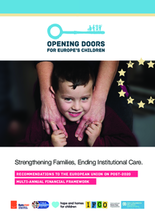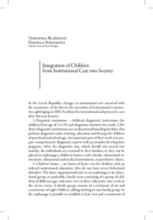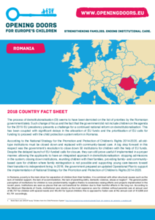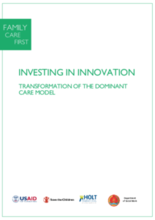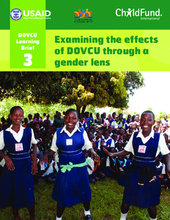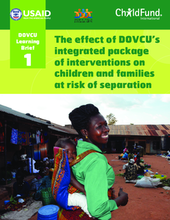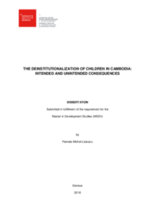Displaying 251 - 260 of 678
This report from Opening Doors for Europe's Children presents recommendations to the EU on how best to include deinstitutionalization and children's care as a part of the next multiannual financial framework.
The 2017 country factsheets provide an update on the status of child protection and care reforms from 16 European countries that are the focus of Opening Doors for Europe’s Children campaign in Phase II.
This article describes the changes in institutional care in the Czech Republic that were ushered in with the acceptance of the law on the execution of institutional or protective upbringing in 2002.
In 2018, there were still 185 institutions in Romania housing 6,632 children. 2,997 children with disabilities were living in 81 institutions for children with disabilities in Romania. The majority of children in out-of-home care were placed in family based care, including 18,317 children in foster care and 18,437 children in kinship care.
This study and documentation of existing reintegration and alternative family care services in Cambodia was designed to build the capacity of existing service providers to take emerging good practice to scale as an increased number of residential care institutions transition.
This learning brief analyzes quantitative data from both households at risk of separation and reintegrating households to understand how the “Deinstitutionalization of Orphans and Vulnerable Children Project in Uganda” (DOVCU) package of integrated social and economic interventions affects children and households differently depending on the sex of the child, caregiver, and/or household head.
This learning brief analyzes quantitative data from the first of the project’s stated objectives: examining the extent to which “Deinstitutionalization of Orphans and Vulnerable Children in Uganda” (DOVCU) project interventions decrease vulnerabilities for households and children at risk of separation.
This research aims to shed light on the perceived intended and unintended consequences of the deinstitutionalization process in Cambodia.
This resource from Opening Doors for Europe's Children features an interactive map of Europe which offers a brief description of children's care reforms in highlighted countries.
Exploring the testimonials collected during a focus group and 45 individual interviews with adult alumni of such institutions the Romanian research team enrolled in the SASCA Project revealed a wide range of forms of violence and traumatic consequences.

